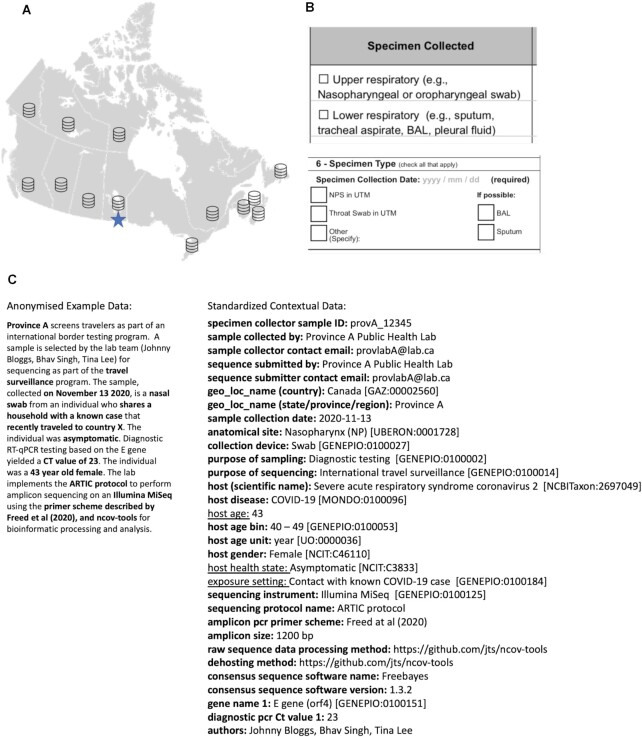Figure 2.
: The PHA4GE specification is being implemented in CanCOGeN to harmonize contextual data across jurisdictions. (A) CanCOGeN is Canada's SARS-CoV-2 national genomic surveillance initiative. Canada has a decentralized health system, with one federal and 13 provincial/territorial public health jurisdictions. Provinces/Territories have authority over how data are collected, stored, and shared. Every Canadian public health jurisdiction uses different collection instruments (e.g., case report forms), different data management systems, and different pipelines and software to perform bioinformatic analyses. Provinces/Territories share sequencing data and accompanying contextual data with the National Microbiology Lab's national SARS-CoV-2 genomics database (starred) according to a version of the PHA4GE specification for national surveillance activities. (B) Excerpts from two different province-specific case collection forms. Sample type information is collected in data collection instruments using different fields, different terms, at different levels of granularity, using abbreviations and formats. BAL: bronchoalveolar lavage; NPS: nasopharyngeal swab; UTM: universal transport medium. (C) An anonymized example of how the standard consistently structures contextual information and how it is being used for data sharing. The contextual data specification provides a wide variety of fields and pick lists of terms. In the example, the full set of standardized information shown would be shared by the province with the national database. Standardized information in boldface would be shared with public repositories; however select data elements (underscored) would be withheld according to jurisdictional data sharing policies. The specification enables users to harmonize and integrate data provenance, sampling strategy criteria, epidemiological information, and methods.

